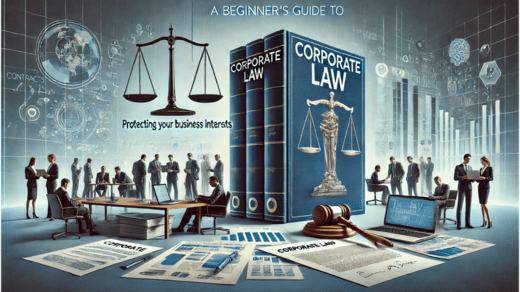1–5: Business Formation
What is the best legal structure for a startup?
The answer depends on the considerations of liability, taxation, and funding objectives. The four most common types of business are sole proprietorships, partnerships, LLCs, and corporations.
What is the difference between an LLC and a corporation?
An LLC provides flexibility and pass-through taxation, whereas a corporation provides limited liability and easier access to funding but with more formalities.
Read Also:
- https://insightfullawhelp.com/25-corporate-law-challenges-and-how-to-address-them/
- https://insightfullawhelp.com/30-corporate-governance-questions-answered-for-entrepreneurs/
- https://insightfullawhelp.com/40-key-corporate-law-questions-every-business-owner-should-understand/
What is a C Corporation and why is it popular for startups?
A C Corp is the standard corporation providing limited liability, easy fundraising, and stock issuance. It’s preferred for venture capital funding even though it experiences double taxation.
How do I register my business?
Registration will include choosing a business name, submitting formation documents to the state, and obtaining necessary permits or licenses.
Do I need a co-founder agreement?
Yes, a co-founder agreement describes roles, equity splits, decision-making processes, and what happens if someone leaves the company.
6–10: Corporate Governance
What are bylaws, and do I need them?
Bylaws are internal rules governing a corporation’s operations. They are important for defining roles, meeting protocols, and decision-making.
What is a shareholder agreement?
A document outlining shareholder rights, responsibilities, and restrictions, such as share transfers or exit strategies.
What is a board of directors and do I need one?
A board oversees a corporation’s management. It’s required for corporations and often beneficial for strategic guidance.
How do I issue stock to founders or employees?
You can issue shares or stock options through an equity compensation plan, ensuring compliance with securities laws.
What is the purpose of corporate minutes?
Corporate minutes are legal records of the decisions made by the board or shareholders during the meeting.
11–15 Legal Compliance and Risk Management
What licenses and permits does my startup need?
That depends on the industry and the location. You might need business licenses, health permits, or zoning approvals.
Yes, for private companies also, issuance of stock or securities must adhere to federal and state securities regulations.
What is IP, and why is it important?
IP comprises trademarks, copyrights, patents, and trade secrets that safeguard your brand, inventions, and competitive advantage.
How do I protect my IP?
File for patents, trademarks, and copyrights; use non-disclosure agreements (NDAs); and implement secure data policies.
What is liability protection and how do you protect yourself?
LLC or corporation formation protects personal assets from business liabilities. Keep records clean, avoid commingling funds.
16–20: Funding and Contracts
What are convertible notes and SAFEs?
Both are mechanisms for raising early-stage funding. Convertible notes are loans that later convert to equity, while SAFEs are agreements for future equity.
What are the legal documents needed to raise funds?
Common documents include term sheets, subscription agreements, and investor agreements and ensure that securities laws are followed.
Do I need employment and contractor contracts?
Yes, contracts define terms of employment or engagement, including roles, payment, confidentiality, and intellectual property rights.
What is a non-compete agreement?
A contract restricting an employee or contractor from competing with the business for a specific time and geographic area.
How do I avoid disputes with investors or partners?
Clear agreements, open communication, and well-drafted contracts help avoid misunderstanding and disputes.



